
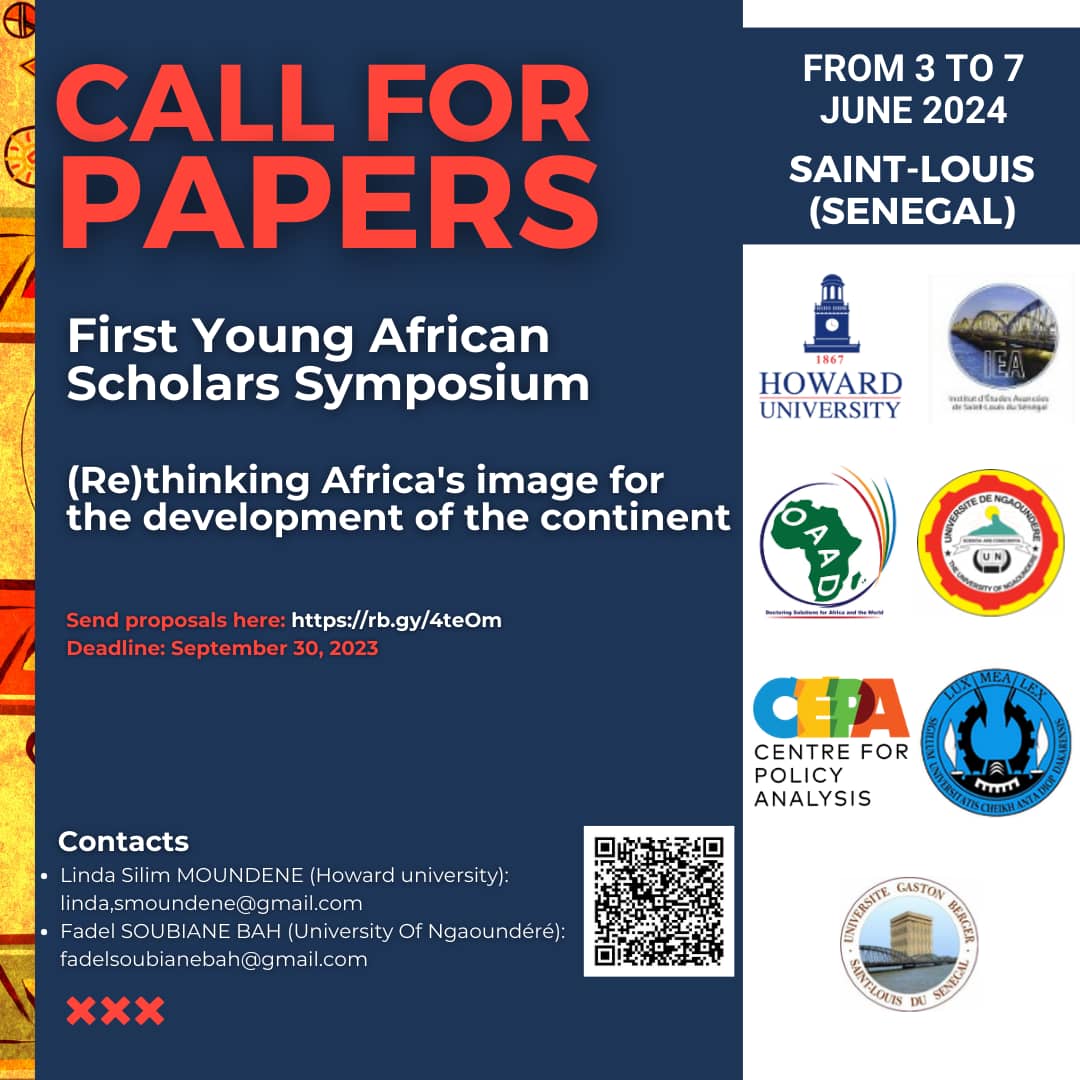
Young African Scholars Symposium Call for Papers
June 3, 2024 @ 8:00 AM - June 7, 2024 @ 5:00 PM WAT
Young African Scholars Symposium
Call for Papers
Saint-Louis (Senegal)
From 3 to 7 June 2024
Topic:
(Re)thinking Africa’s image for the development of the continent
Appel à communications pour le
Symposium des Jeunes Chercheurs
Africains
Saint-Louis (Sénégal)
Du 3 au 7 juin 2024
Thème :
(Re)penser/(Re)panser l’image de l’Afrique pour le
développement du continent
L’Afrique a la population la plus jeune au monde. Elle est estimée à plus de 400 millions de jeunes âgés de 15 à 35 ans. Selon les projections des Nations unies, le nombre d’Africains devrait atteindre 2,7 milliards en 2050 et 4,5 milliards en 2100. Mieux, « un humain sur deux devant arriver sur Terre d’ici à 2050 verra le jour sur ce continent ». La réalité ne permet pas, cependant, de parler de dividende démographique. Même constat en ce qui concerne les ressources naturelles. Une part importante des minerais utilisés dans la production industrielle provient du sous-sol africain. Autant d'atouts qui, dans les discours officiels, font de l'Afrique le continent de l'avenir. Mais pourquoi seulement de l'avenir et pas du présent ?
Cette question est dictée par le constat effarant de son retard socioéconomique par rapport aux autres continents. Comment expliquer une telle situation après plus de six décennies d’indépendance ? Les réponses sont kyrielles : du passé esclavagiste au présent néocolonialiste en passant par le siècle de colonisation. Si les finalités de cette longue période de domination sont surtout d’ordre économique, elle a été cimentée par des préjugés traitant l’Afrique de continent aux religions et coutumes « incapables d’élever leurs adeptes à un niveau supérieur de civilisation et de moralité » (Dakar, ANS, O516 (31)).
This ideology, which served to legitimize the so-called “civilizing mission” of western colonialism, was developed, and disseminated by reluctant authors. From their writings stemmed racist discourses which have fuelled a subjective debate, validated La pensée blanche (L. Thuram, 2020) and underpinned discriminatory policies against the African diaspora, as well as painted a falsified image of an Africa “badly off” (see R. Dumont, 1962) and incapable of development (see A. Kabou, 1991). The impression that Africa is a "cursed" continent however contrasts largely with the realities it has undergone and experienced. Both sides of the above paradox strongly explains the Afro-scepticism/Afro-pessimism that has reached the less informed and popular masses. The need to change this overall dynamic is acute and requires more than a redefinition of priorities, public policies, and development programs. It is necessary to adopt a posture based on an Afro-optimism that could reposition Africa as "a hopeful continent". While it is true that Africa has a strong need to rethink its own development models and systematically correct the tendentious and racist falsifications of its history, it is no less true that the imperative to rethink and reinvent its development is becoming categorical. It is important to learn from history by taking ownership of the new challenges and issues facing the African continent.
Cette idéologie, qui a servi à légitimer la soi-disant mission civilisatrice du colonialisme occidental, a été développée et diffusée par des auteurs peu enthousiastes. Ainsi, les discours racistes, qui ont alimenté un débat subjectif, validé La pensée blanche (L. Thuram, 2020) et sous-tendu les politiques discriminatoires contre la diaspora, offrent un tableau sur lequel est peinte une image falsifiée d’une Afrique « mal partie » (R. Dumont, 1962), refusant le développement (A. Kabou, 1991). Dès lors, l’impression que l’Afrique soit un continent « maudit » contraste largement avec les réalités subies et vécues. Les deux contributions, sur la base du paradoxe sus-indiqué, peuvent fortement s’expliquer par l’Afro-scepticisme/Afro-pessimisme qui a gagné les moins avertis et les masses populaires. La nécessité d’infléchir cette dynamique d’ensemble se pose avec acuité et ne passe pas seulement par une redéfinition des priorités, des politiques publiques et programmes de développement. Il convient alors d’adopter aussi une posture basée sur l’afrooptimisme qui pourra faire de l’Afrique « a hopeful continent ». S’il est vrai que l’Afrique a fortement besoin de repenser ses propres modèles de développement et de corriger systématiquement les falsifications tendancieuses et racistes de son histoire, il n’en demeure pas moins exact que la nécessité de réinventer son développement devient catégorique. Il importe de tirer les leçons de l’histoire en s’appropriant les nouveaux défis et enjeux qui interpellent le continent africain.
This symposium, conceived and led by young African scholars, is part of an agenda for a revisionist perspective on Africa. It aims to engage debates in Africanist intellectual circles around the revision of the image of the African continent in a planet marked by the race for development where the great powers are engaged in an asymmetrical promotion of their culture, which they implicitly bait the rest of the world with.
Prospective participants wishing to present papers at the symposium are requested to organize their contributions, as far as feasible, within the following advisory conceptual and research guidelines:
- Women and development in Africa.
- Culture and Development in Africa.
- Religion, Spirituality and Development in Africa.
- Africa through the African lens.
- Education and training in the Africa of the future.
- Entrepreneurship and ICT.
- Languages and African integration.
- African Diaspora and development.
- Africa and the world: what new relationships?
- African sports and athletes: Showcase of Africa.
Ce symposium, conçu et organisé par des jeunes chercheurs africains, s’inscrit dans une perspective révisionniste sur l’Afrique. Il ambitionne d’alimenter les débats des cercles intellectuels africanistes autour de la révision de l’image du continent africain dans le contexte d'un ordre mondial marqué par la course au développement, où les grandes puissances s'attellent à une promotion asymétrique de leur culture qu'elles posent comme un appât implicite au reste du monde.
Cette thématique sera analysée à travers les sous-thèmes non exhaustifs suivants :
- Femme et développement de l’Afrique ;
- Démographie (Jeunesse) et développement de l’Afrique ;
- Culture et développement de l’Afrique ;
- Religion, spiritualité et développement de l’Afrique ;
- L’Afrique à travers le regard des Africains ;
- Éducation et formation dans l’Afrique de demain ;
- Start-up, entrepreneuriat et TIC ;
- Langues et intégration africaine ;
- Diaspora et développement ;
- L’Afrique et le monde : quels nouveaux rapports ?
- Sports et sportifs africains : vitrines de l’Afrique…
These themes raise 4 major axes. We invite scholars from all disciplines to provide answers to these questions:
Axis 1 – (Re)thinking the image of Africa: How do we think about the image of Africa today?
Given that the image of Africa, as an instrument of propaganda, is also a factor of development, developing Africa means first (re)thinking its image, and decolonizing it. It means attempting to dismantle prejudices, changing the imaginary, building self-esteem and confidence (L. Thuram, 2009). The image has, indeed, a power of persuasion (H. Joffe, 2007). It acts in the apprehensions and conceptions of the individual. In addition to acting as a showcase, an image contributes to the (re)positioning of a space, a region, and a continent through set directions and objectives. If we are interested in the power of the image, we can understand how a country like the United States has used Hollywood as a tool to conquer and promote the ideology of the American way of life. Thus, this axis of reflection proposes to reflect on what strategic image of Africa to promote in a century of plural competitions?
Ces axes soulèvent quatre interrogations majeures. Nous invitons les chercheurs et enseignants-chercheurs de toutes les disciplines à y apporter des réponses :
Axe 1 : (Re)penser l'Afrique. Comment penser aujourd’hui l’image de l’Afrique ?
Étant entendu que l’image, en tant qu’instrument de propagande, est aussi un facteur de progrès, développer l’Afrique, c’est d’abord (re)penser/(re)panser son image, la décoloniser. C’est chercher à démolir les préjugés, changer l’imaginaire, bâtir l’estime de soi et la confiance (L. Thuram, 2009). L’image a, en effet, un pouvoir de persuasion (H.Joffe, 2007). Elle agit dans les appréhensions et les conceptions individuelles. Outre le rôle de vitrine qu’elle joue, l’image contribue à (re)positionner un espace, une région et un continent par l’orientation qu’on lui donne et les objectifs que l’on s’assigne. Si l’on s’intéresse au pouvoir de l’image, on pourrait comprendre comment un pays comme les États-Unis, à travers Hollywood, en a fait un outil de conquête et de promotion de l’idéologie de l’American way of life. Ainsi, cet axe propose de réfléchir sur quelle image stratégique de l’Afrique à promouvoir dans un siècle des compétitions plurielles ?
Axis 2- Africa and its culture: How can the African culture reflect the power of the continent?
It is indisputable that culture can contribute to the radiance of the continent and its diaspora. There are many examples that illustrate moments when Africa has been at the top of the world, from soccer to music and multiple other forms of art and cultural production. When we talk about France, we think of romanticism, joie de vivre, gastronomy, wine, the French Riviera, etc. In the same way, do African countries think and reflect their image, or why do African countries fail to diversify their image, yet each country is a cultural reservoir with potential to be developed. With statement like “we are not just war, hunger, or crisis”, scholars and authors should write about the impact of today’s negative image of the continent’s people and the need for a new narrative.
How can these aspects drive the continent's development? How do Africans write about their continent? How do they define themselves? What image do they convey of their culture?
Axe 2 : L’Afrique et sa culture. Comment est-ce que la culture africaine peutelle refléter la puissance du continent ?
Il est indiscutable que la culture peut contribuer au rayonnement du continent et de sa diaspora. Nombreux sont d’ailleurs les exemples qui illustrent les moments où l’Afrique a été au sommet du monde : du football à la musique en passant par multiples autres formes d’art et de productions culturelles. Comment ces aspects peuvent-ils être le moteur de développement du continent ? Comment les Africains écrivent-ils leur continent ? Comment se définissent-il ? Quelle image véhiculent-ils de leur culture ?
Axis 3- Between modernism, feminism, and traditionalism: How does the image of women impact development?
At the centre and at the margin of society, the image of the African woman is at the intersection of several notions. while the image of the African woman is the pillar of society and guardian of tradition, it is at the same time modern, feminist, and somehow lost within all the notions that serve to define her. Even though women are recognized as being of great importance to society as mothers, daughters, and wives, with the invasion of alienating foreign media, the objective and positive image of the African woman is often questioned on the continent and elsewhere. The works of authors such as Nwando Achebe or Oyéwumi show that the African woman needs to reconcile herself with her history to contribute to the radiance of the continental community at every level.
Axe 3 : Entre modernisme, féminisme, traditionalisme. Quel rôle de la femme dans le développement de l’Afrique ?
Même si on lui reconnaît une grande importance dans la société en tant que mère, fille et épouse, on constate qu'avec l’invasion de l'Afrique par des médias étrangers, l’image objective et positive de la femme africaine est souvent remise en cause sur le continent et ailleurs. Les travaux des auteurs comme Nwando Achebe ou Oyéwumi montrent que la femme africaine a besoin de se réconcilier avec son histoire pour continuer sa contribution au rayonnement de la communauté continentale africaine à tous les niveaux.
Axis 4- Youth and development: How to build Africa by/with its youth?
Developing Africa by (re)thinking its image means putting African youth at the centre of the process. This means considering that young people, who make up 60-70% of the African population, have a key role to play in the continent's development. Among other things, it is important to seize this opportunity and to provide objective convincing answers based on scientific research and mature thinking.
It is also important to understand that due to the hope they carry, young people are ambassadors of a positive ideal and, therefore, of a bright image of a continent long painted with a dark accent. For Africa to stop being "a museum of the population", its young people must be called upon to, through their capacity for initiative and productive reflection, position themselves as promoters of another vision of Africa, one that is at the antipodes of negationist ideas long conveyed by the colonial library and maintained by the collective imagery.
Axe 4 : Jeunes et développement. Comment faire l’Afrique par/avec sa jeunesse ?
Développer l’Afrique, en (re)pensant/(re)pansant son image, revient à mettre la jeunesse africaine au cœur de ce processus. Il importe, entre autres, de saisir cette question thématique et d'y apporter des réponses objectives et convaincantes fondées sur des recherches scientifiques et des réflexions mures. C’est considérer que les jeunes, qui représentent 60 à 70% de la population africaine, ont un rôle primordial à jouer dans le développement du continent.
C’est considérer aussi qu’ils sont, de par l’espoir qu’ils portent, les ambassadeurs d’un idéal positif et, donc, d’une image éclatante d’un continent longtemps peint avec un tableau sombre. Pour que l’Afrique cesse « d’être un musée de la population », les jeunes sont appelés, de par leur capacité d’initiative et leur réflexion productives, à se positionner comme les promoteurs d’une autre vision de l’Afrique aux antipodes des idées négationnistes longtemps véhiculées par la bibliothèque coloniale et entretenues par l’imaginaire collectif.
Evaluation and Selection
Contributions will be evaluated and selected by a scientific committee, composed of scientists and young researchers from all disciplines. Evaluators will pay particular attention to the following criteria:
- Relevance: Each contribution must fit into one of the axis and answer pertaining questions.
- Realism of the proposals: Each proposal must integrate a realistic dimension that is implementable at the end of the symposium.
- Added value: Each proposal must advance the debate in society.
- Quality of the approach: The methodology used must be fitting and must allow for the evolution of research in Africa.
- Inclusion: Each proposal must speak to everyone and must give place to the public in its scientific production.
Évaluation et sélection
Les contributions seront évaluées et sélectionnées par un comité scientifique, constitué de scientifiques et jeunes chercheurs de toutes les disciplines. Les évaluateurs seront particulièrement attentifs aux critères suivants :
- « Pertinence : chaque contribution doit s’insérer un des thèmes ci-dessus et répondre aux questions y afférentes.
- Réalisme des propositions : chaque proposition doit intégrer une dimension réaliste et applicable à la sortie du symposium.
- Valeur ajoutée : chaque proposition doit permettre de faire avancer le débat de la société.
- Qualité de la démarche : quelle est la méthodologie utilisée, et comment est-ce que cette dernière permet de faire évoluer la recherche en Afrique.
- Inclusion : comment est-ce que chaque proposition parle à tout le monde ? Quelle est la place du grand public dans la production scientifique ».
Submission instructions
Researchers are encouraged to submit papers that address 1 or more of the 4 key issues specified. Based on the format adopted, presentations will last 20 minutes and will be followed by a discussion with the audience.
To participate, please send a proposal including a title, a short presentation of the envisaged contribution (350 words maximum), 5 keywords and a short biobibliographical note.
Please submit here:
Soumission
Les chercheurs sont encouragés à proposer des communications s’inscrivant dans les 4 grands questionnements déclinés plus haut. Les communications, selon le format adopté, dureront 20 minutes et seront suivies de discussions avec le public.
Pour participer, il est demandé d’envoyer une proposition de communication comportant un titre, un bref texte de présentation de la contribution envisagée (350 mots maximum), 5 mots-clés et une courte notice biographique de l’auteur.
Soumettez votre proposition ici.
Contact
For all questions email:
- Linda Silim MOUNDENE (Howard university) linda.smoundene@gmail.com
- Fadel SOUBIANE BAH (University Of Ngaoundéré):fadelsoubianebah@gmail.com
Contact
Pour toutes questions contactez :
- Linda Silim MOUNDENE (Howard university) linda.smoundene@gmail.com
- Fadel SOUBIANE BAH (Université de Ngaoundéré):
fadelsoubianebah@gmail.com
Timeline
- Launching call: June 30, 2023
- Deadline for abstracts: September 30, 2023
- Selection of contributions by the scientific committee: October 15, 2023
- Deadline for submission of final papers: 30 March, 2024
- Symposium: June 3-7, 2024
Calendrier
- Lancement de l’appel : 30 Juin 2023
- Date limite de réception des résumés : 30 septembre 2023
- Notification de l’acceptation par le comité scientifique : 15 Octobre 2023
- Date limite d’envoi des articles définitifs : 30 Mars 2024
- Tenue du symposium : du 3 au 7 juin 2024
Scientific Committee
Hamadou Adama (Université de N’Gaoundéré, Cameroun)
Ansouma Bodian (Gaston Berger University, Senegal)
Mohamed S. Camara (Howard University, USA)
Chambi Chachage (Howard University, USA)
Mamadou Drame (Cheikh Anta Diop University, Senegal)
Abdouraman Halirou (Université de N’Gaoundéré, Cameroun)
Babacar Fall (IEA Of Saint Louis, Senegal)
Jude Fokwang (Regis University, USA)
Christian Fouelefack (Dschang University, Cameroun)
Marwa Ghazali (Houston University, USA)
Mouhamadou El Hady Ba (Cheikh Anta Diop University, Senegal)
Augustin Holl (Xiamen University, China)
Marie-Claude Jipguep (Howard University, USA)
Krista Johnson (Howard University, USA)
Benjamin Maiangwa (Lakehead University, Canada)
Yvan Megaptche (Hubei University of Automotive Technology, China)
Vivien Meli Meli (Dschang University, Cameroun)
Hannah Muzee (Centre for Policy Analysis)
Ousmane Ngom (Gaston Berger University, Senegal)
Ibrahima Sarr (Gaston Berger University, Senegal)
Comité scientifique
Hamadou Adama (Université de N’Gaoundéré, Cameroun)
Ansouma Bodian (Université Gaston Berger, Sénégal)
Mohamed S. Camara (Université de Howard, USA)
Chambi Chachage (Université de Howard, USA)
Mamadou Drame (Université Cheikh Anta Diop, Sénégal)
Babacar Fall (IEA de Saint Louis, Sénégal)
Jude Fokwang (Regis University, USA)
Christian Fouelefack (Université de Dschang, Cameroun)
Marwa Ghazali (Université de Houston, USA)
Mouhamadou El Hady Ba (Université Cheikh Anta Diop, Sénégal)
Abdouraman Halirou (Université de N’Gaoundéré, Cameroun)
Augustin Holl (Université de Xiamen, Chine)
Marie-Claude Jipguep (Univrsité de Howard, USA)
Krista Johnson (Université de Howard, USA)
Benjamin Maiangwa (Université de Lakehead, Canada)
Yvan Megaptche (Université des Technologies Automobiles de Hubei, Chine)
Vivien Meli Meli (Université de Dschang, Cameroun)
Hannah Muzee (Centre for Policy Analysis)
Ousmane Ngom (Université Gaston Berger, Sénégal)
Ibrahima Sarr (Université Gaston Berger, Sénégal) pi
Please check event flyer for more details. 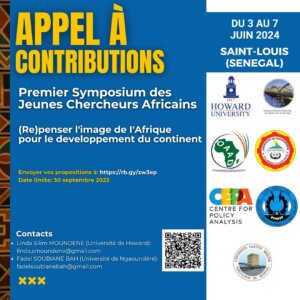
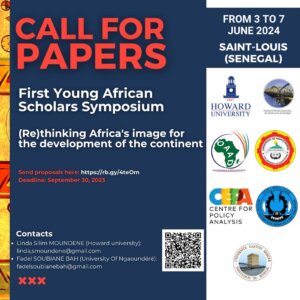
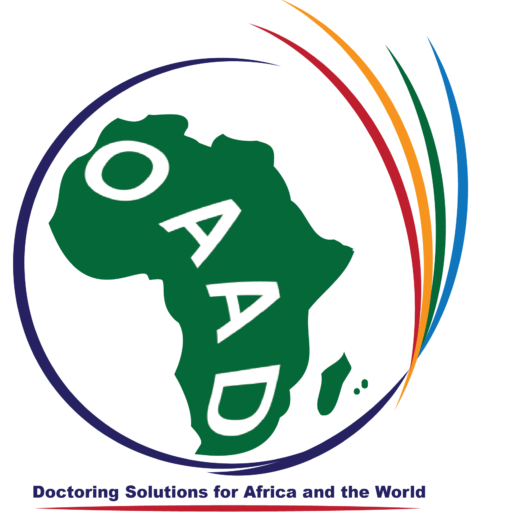
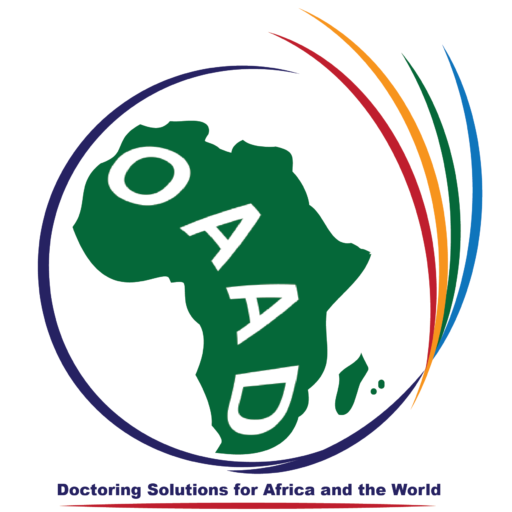
Leave A Comment
You must be logged in to post a comment.